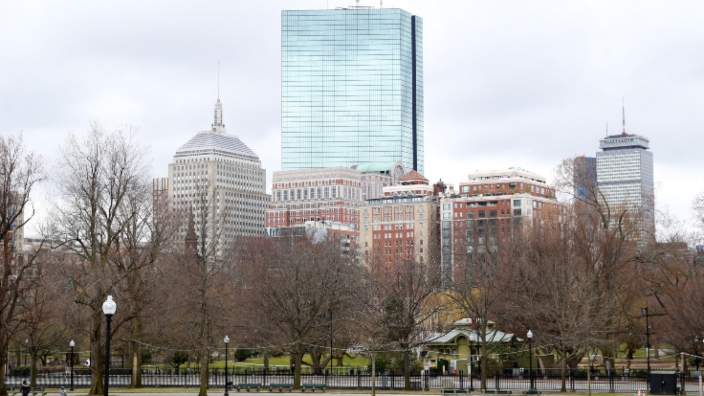Resolution apologizing for Boston’s role in slavery approved
The non-binding resolution pledges Boston will remove "prominent anti-Black symbols" and educate residents on the history of its slave trade.
BOSTON (AP) — Boston’s city council unanimously approved a resolution Wednesday apologizing for the Massachusetts capital’s role in the trans-Atlantic slave trade.
The resolution, which is non-binding, pledges the city will remove “prominent anti-Black symbols” and educate residents on the history of Boston’s slave trade, among other things. But it stops short of committing the city to funding any specific policies or programs to atone for slavery’s harms, such as paying reparations.

Councilor Tania Fernandes Anderson, who proposed the resolution, said after the vote that the formal apology represents “an opening salvo” as the city looks to address the harms caused by slavery.
“To those who ask, why now, I simply say that now is the time,” she said in a statement. “Great personal and institutional wealth in Boston was built on the backs of enslaved Africans, who reaped none of the economic benefits from their labor.”
The council is currently weighing a separate proposal creating a city commission to weigh reparations and other forms of atonement for Boston’s legacy of slavery and racial inequality.
Anderson’s resolution states slavery was first legalized in Massachusetts in 1641 and that the developing Boston economy depended on slaves who “served as butlers, maids, courtiers, beer makers, drivers, cooks and producers of clothing.”
Slavery, the resolution continues, led to “present-day trauma and economic, political, social and racial disparities” such as poorer housing and public education options and income inequality.
Rev. Kevin Peterson of the advocacy group the New Democracy Coalition, said Wednesday’s vote was a historic moment.
“Having the city of Boston apologize for slavery was once unthinkable,” he said in a statement. “We have found something to build on for the healing of the city.”
Mayor Michelle Wu said the city has a responsibility to condemn its role in slavery and the lasting inequities it caused.
“Boston is revered for our role in this country’s founding, but we must acknowledge and address the dark pieces of that history that too often go untold,” she said in a statement. “We must learn from our past, right wrongs, and build an equitable Boston that works for everyone.”
TheGrio is FREE on your TV via Apple TV, Amazon Fire, Roku and Android TV. Also, please download theGrio mobile apps today!
More About:Black History Month News



